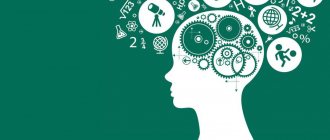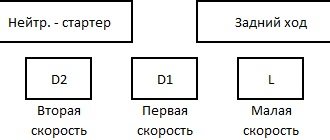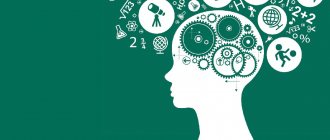Introduction
The textbook that you are now holding in your hands is addressed to all those whose activities (in the future or present) are related to communication, to all who, by the nature of their occupation, must communicate effectively and competently with people, who strive to improve interpersonal relationships.
The content of the textbook meets the requirements of the State Standard of Vocational Education.
The main goal of the academic discipline that you have to study is the formation of a professional with certain psychological and moral qualities necessary in everyday activities.
The German philologist, philosopher, and linguist Wilhelm Humboldt (1767-1835) noted that there is nothing more interesting for a person than people. We communicate with people every day (at home, at work, in transport, in stores), interact with them and try to draw conclusions about the behavior of others. So, for example, we know how to “read” by external manifestations - facial expressions, voice, and try to determine the emotional state of another person. From early childhood, children behave and talk very differently with their grandmother, father, and mother. They begin to understand early on at what point they can come up with a request (demand), and when they need to remain silent or postpone the request until better times. As you can see, everyday experience tells us different behavioral tactics, and in this sense we can safely call ourselves psychologists.
The ability to distinguish the mood of other people, the characteristics of their character and behavior in communication belongs to the field of everyday psychology. Official science is based on everyday psychology and appeared only in the last quarter of the 19th century (in 1879, the German psychologist W. Wundt founded the first laboratory of experimental psychology in Leipzig).
The word "psychology" comes from the Greek words: psyhe
(soul) and
loqia
(science, understanding) - and means “science of the soul.” Ancient and young, full of secrets and mysteries, it attracts the attention of thinking people.
Currently psychology
is the science of the laws of development and functioning of the psyche as a special form of life activity. Psychology is a branched system of sciences; it has relatively independent sub-branches: developmental psychology, educational, medical, military, social, management psychology and others.
The textbook examines social psychology, which studies patterns of communication, interpersonal cognition, and group behavior, and also reveals the importance of ethics and business culture in establishing contacts. Knowledge of psychology, ethics of communication and culture of behavior is always in demand and practically necessary.
By the beginning of the 21st century, many remarkable discoveries had been made in various fields of science: physics, chemistry, genetics, medicine, but man still remains the most complex and unknown mystery, which means that the saying “another soul is darkness” will remain relevant for a long time. After all, even a person’s self-interest has two sides. On the one hand, he is interested in himself. Remember how in a group photo we look for our face: “How did it turn out?” On the other hand, we don’t always want (we don’t always strive, we are afraid) to get an idea of ourselves, to see the negative sides, to learn the “bitter” truth. We readily notice the shortcomings of another, explain the bad behavior of our partner by his shortcomings and at the same time are reluctant to discuss our own shortcomings, and we explain (justify) unworthy behavior (of course, not characteristic of us) by external circumstances: “that’s how the stars aligned,” “life forced us” … Research conducted by psychologists and sociologists shows that we are more concerned with how to change other people. We look for the reasons for our personal failures and ill-being in other people, in current situations and circumstances, but not in ourselves.
Each person is unique, inimitable. Knowing yourself, managing yourself, feeling the joy of communication, adapting to new conditions, living in harmony with others, and also learning to hear, listen and understand a person - these are the main tasks
discipline being studied. These tasks can be easily solved with proper business relationships.
Business relationship
belong to the type of social relations and are considered as relationships between partners and colleagues that arise in the process of joint activities and in a team. In business relationships, employees should focus on the partner, the consumer, which, in turn, increases interest in professional activities. Business relationships are closely related to communication.
Communication
is a complex process of establishing and developing contacts between people.
The main thing in communication is not memorizing the rules, but mastering the culture of relationships and the culture of speech in order to briefly and accurately, expressively and intelligibly convey your thoughts to your interlocutor. It reveals values such as sensitivity, responsiveness, kindness, empathy and understanding. All these values are inextricably linked with the culture
of behavior, i.e. with such actions and forms of communication of people that are based on morality, aesthetic taste, as well as compliance with certain norms and rules.
Self-test questions
1. Folk sayings, proverbs, fairy tales and myths, parables serve as the sources of psychological theories and branches of psychology.
Give examples of apt proverbs and sayings that reflect knowledge of everyday psychology.
2. Does your behavior change depending on who you communicate with?
3. Do you know how to accept a remark with dignity and respond to it appropriately?
Don’t rush to answer, think about your behavior and try to critically (as if from the outside) evaluate it. The textbook will help you understand the intricacies of interpersonal communication, in which you need not only to know your strengths and weaknesses, but also to learn how to translate weaknesses into strengths.
List of all emotions (most common)
Among all known human emotions, the most powerful are the emotions from the list below:
- Anger. Has anyone ever told you not to do what you want? How are you feeling? Is your blood starting to boil, is your temperature rising? This is usually how anger is described. Your body reacts to something that is not happening your way, and this is an attempt to correct the situation;
- Sadness. If you miss a deadline, get a bad grade, or don't complete work, you'll probably feel upset. Sadness happens when we are unhappy with ourselves, our accomplishments, or the behavior of someone else around us. Sadness can be a healthy experience because it indicates that we are passionate about something. It can be a great catalyst for achieving change;
- Joy is a feeling of delight, happiness, and perhaps even euphoria, often experienced as a sudden surge due to something good;
- Hope is a feeling of optimism and anticipation of a positive future;
- Pride is a feeling of self-approval and pleasure in an achievement or skill.
To prevent your emotional state from harming you and your environment, you need to learn to control your feelings and emotions. Despite the fact that emotions arise on their own, it is quite possible to curb them. In any current situation, you need to look at the circumstances soberly in order to prevent bad consequences.
A list of a person’s emotions and feelings will help you understand your inner state. Using this table, you can divide our emotions into certain groups in order to understand your inner world more deeply and stop in time if the situation gets out of control.
Chapter 1. ETHICS AND CULTURE OF BEHAVIOR
It's easier to do something right away,
than then explain why it was done poorly.
Longfellow (1807–1882), American poet
Currently, close attention is paid to the study of the ethics of business relations in order to improve the level of culture of these relations. Ethics covers a wide range of issues and must be taken into account in relationships within and between organizations. Without observing business ethics and a culture of behavior, most people in the team feel uncomfortable and unprotected.
The most important aspect of professional behavior is business etiquette, which sets standards of behavior at work, on the street, at a party, in transport, etc. Speech etiquette, the art of conducting telephone conversations, rules of correspondence and appearance serve as signs of your good manners, respectability and self-confidence.
Remember that in business relationships there are no trifles.
1.1. General information about ethical culture
As you know, a person enters into business relationships with other people throughout his life. One of the regulators of these relations is morality, which expresses our ideas about good and evil, about justice and injustice. Morality gives a person the opportunity to evaluate the actions of others, to understand and comprehend whether he is living correctly and what he should strive for. A person can make communication effective and achieve certain goals if he correctly understands moral standards and relies on them in business relationships. If he does not take into account moral standards in communication or distorts their content, then communication becomes impossible or causes difficulties.
Who created the rules of human behavior? Why is one behavior approved by society, while another is condemned? Ethics answers these questions.
Ethics
is one of the oldest branches of philosophy, the science of morality.
The term “ethics” comes from the Greek word “ ethos ”
(“ethos”) - custom, morality. The term “ethics” was introduced by Aristotle (384-322 BC) to designate the doctrine of morality, and ethics was considered a “practical philosophy” that should answer the question: “What should we do in order to do the right things?” , moral actions?
Initially, the terms “ethics” and “morality” coincided. But later, with the development of science and social consciousness, different contents were assigned to them.
Morality
(from Latin
moralis ~
moral) is a system of ethical values that are recognized by a person. It regulates human behavior in all spheres of public life - at work, at home, in personal, family and international relations.
The most important categories of ethics
are: “good”, “evil”, “responsibility”, “justice”, “duty”.
“Good” and “evil” are indicators of moral behavior; it is through their prism that a person’s actions and all his activities are assessed. Ethics considers “good” as the objective moral meaning of an action. It unites a set of positive norms and moral requirements and acts as an ideal, a role model. “Good” can act as a virtue, i.e. be a moral quality of a person. “Good” is opposed to “evil”; there has been a struggle between these categories since the foundation of the world. Morality is often identified with goodness, with positive behavior, and evil is seen as immorality and immorality. Good and evil are opposites that cannot exist without each other, just as light cannot exist without darkness, up without down, day without night, but nevertheless they are not equivalent.
Acting morally means choosing between good and evil. A person strives to build his life in such a way as to reduce evil and increase good. Other important categories of morality—duty and responsibility—cannot be correctly understood, much less become important principles in human behavior, if he has not realized the complexity and difficulty of the struggle for good.
Moral norms receive their ideological expression in commandments and principles about how one should behave. One of the first rules of morality in history is formulated as follows: “act towards others as you would like them to act towards you.” This rule appeared in the VI-V centuries. BC. simultaneously and independently of each other in different cultural regions - Babylon, China, India, Europe. Subsequently, it began to be called “golden”, since great importance was attached to it. Nowadays, it also remains relevant, and we must always remember that a person becomes a person only when he affirms the humanity in other people. The need to treat others as oneself, to elevate oneself through the exaltation of others, is the basis of morality and morality.
The Gospel of Matthew says: “So in everything you want people to do to you, do so to them” (Chapter 7, Article 12).
The moral life of a person and society is divided into two levels: on the one hand, what is: existence, morals, actual everyday behavior; on the other hand, what should be: due, an ideal model of behavior.
Often in business relationships we are faced with contradictions between what is and what should be. On the one hand, a person strives to behave morally, as they say, properly, on the other hand, he wants to satisfy his needs, the implementation of which is often associated with a violation of moral norms. This struggle between ideal and practical calculation creates a conflict within a person, which is most acutely manifested in the ethics of business relations, in business communication. Since the ethics of business communication is a special case of ethics in general and contains its main characteristics, then under the ethics of business communication
is understood as a set of moral norms and rules governing the behavior and relationships of people in professional activities. Therefore, when studying the course “Business Culture and Psychology of Communication,” we will talk about how to act in business relationships, so that you know about it, try to accept it and act accordingly.
The norms and rules of behavior in force in society require a person to serve society and coordinate personal and public interests. Moral standards are based on traditions and customs, and morality teaches us to do every thing in such a way that it does not cause harm to the people who are nearby.
One of the main elements of the culture of business communication is the moral behavior of people. It is based on universal human moral principles and norms - respect for human dignity, honor, nobility, conscience, sense of duty and others.
Conscience is a person’s moral awareness of his actions, thanks to which we control our actions and evaluate our actions. Conscience is closely related to duty. Duty
- this is an awareness of the conscientious performance of one’s duties (civil and official). For example, when a duty is violated, thanks to conscience, a person is responsible not only to others, but also to himself.
is of great importance for the moral character of a person ,
which is expressed in recognition of a person’s moral merits, in reputation. The honor of an officer, the honor of a businessman, the honor of a knight - it is this that requires a person to maintain the reputation of the social or professional group to which he belongs. Honor obliges a person to work conscientiously, to be truthful, fair, to admit his mistakes, and to be demanding of himself.
Dignity
is expressed in self-respect, in awareness of the significance of one’s personality;
it does not allow a person to humiliate himself, flatter and please for his own benefit. However, an excessive sense of self-esteem does not really decorate a person. The ability of a person to be restrained in revealing his merits is called modesty.
A person who is worth something does not need to flaunt his merits, increase his worth, or instill in others the idea of his own irreplaceability.
An integral part of the culture of business communication is nobility.
A noble man is true to his word, even if it is given to an enemy. He will not allow rudeness towards people he does not like, and will not slander them in their absence. Nobility does not require publicity and gratitude for help and sympathy.
Self-test questions
1. How did the terms “ethics” and “morality” arise and what do they express?
2. What are “good” and “evil”?
3. Formulate the “golden rule of morality.”
4. What are the main elements included in the concept of “business communication culture”?
1.2. Professional ethics
In the East and Western Europe, since ancient times, great importance has been attached to the need to take into account ethical norms and values in business communication. Their influence on the efficiency of business management was especially emphasized.
Professional moral standards
There were and remain politeness, attentiveness, tact, and hard work.
Politeness
is an expression of respect for other people and their dignity.
The basis of politeness is goodwill, which is manifested in greetings and wishes. For example, we wish good night, good morning, success, health, etc. The words of the Spanish writer Miguel Cervantes (1547-1616) are widely known that nothing costs us so little or is valued so dearly as politeness. A polite person is a helpful
person; he strives to be the first to show courtesy, the first to give up his seat in a vehicle, and to hold the door.
A moral norm akin to politeness is correctness,
which means the ability to maintain oneself within the bounds of decency in any situation, especially in conflict situations.
Correct behavior is manifested in the ability to listen to a partner, in the desire to understand his point of view. Politeness is determined by tact
and
a sense of proportion.
To be tactful means to skillfully make a remark without humiliating a person’s dignity, to provide him with the opportunity to get out of a difficulty with honor.
The set of moral norms that determine a person’s attitude towards his professional duty is included in the concept of professional ethics.
Society places increased moral demands on certain types of professional activities and requires highly qualified workers in the performance of their professional duties. This applies to those working in the service sector, transport, healthcare, management, education and the like, since the objects of activity of these professional groups are people.
Each type of professional ethics is determined by the uniqueness of professional activity and has its own specific requirements in the field of morality. For example, the professional ethics of military service requires strict fulfillment of official duty, courage, discipline, and devotion to the Motherland. The uniqueness of medical ethics is focused on human health, its improvement and preservation. However, any specificity of professional ethics is impossible without taking into account universal human values and ethical standards. Let's look at professional ethics using an example.
Regardless of social status or age, we are all buyers. What does the buyer want from the sellers? Firstly, purchasing a high-quality, fashionable, comfortable product at an affordable price. Secondly, competence, attentive and polite attitude towards yourself when choosing a purchase. Therefore, the seller's task is to satisfy requests and
consumer desires. Therefore, the most important requirements of professional ethics of a trade worker in relation to the buyer are attentiveness, politeness, and goodwill.
The business relationship between the seller and the buyer begins with a greeting, which must be accompanied by a smile. Greetings are followed by the words: “Please, what are you interested in?” or “I’m listening to you.” If the seller is already serving a client, he should apologize and ask to wait, and not say: “Can’t you see that I’m busy.” Once free, the seller finds out what product we are interested in and at what price, after which he reports the characteristics of the available goods.
A professional seller must take into account the gender and age of the buyer and strive to determine his psychological characteristics (aggressiveness, poise, decisiveness - indecisiveness, gullibility - incredulity). It has been established that the behavior of young and old people, men and women differs in the store. For example, men visit a store purposefully, they know what they need to buy, and if the product is available, they buy it. They are more susceptible to the influence of the seller than women and often expect advice from him and are guided by his opinion. Women rely on themselves to make their choices; They look at the product for a long time and therefore it is not recommended to rush them.
The professionalism of the seller is enhanced by his ethical education, which is manifested in speech, facial expressions, and gestures; rudeness, vulgarity and irritability are unacceptable. The seller must be restrained in various situations, for example, when the buyer examines the product for a long time, asks questions and is interested in details, although he does not intend to buy this product. He must be restrained even with an ill-mannered and aggressive customer, since responding to rudeness with rudeness does not have a positive effect. On the contrary, the atmosphere becomes tense, a conflict is brewing, which often leads to the intervention of the administration. The end of the sellers' communication with us, the buyers, is the acceptance of payment for the selected product and its packaging, after which the seller must thank us for the purchase.
In turn, we, buyers, should not forget about politeness and restraint of our negative emotions and bad mood.
A special place in the ethics of trade is occupied by the requirement for appearance and clothing. Tasteless and unkempt clothes, unkempt hair and dirty hands can turn a buyer away from shopping and visiting the store. In addition, trade workers need to monitor their speech when communicating not only with customers, but also with each other!
So, if your field of activity is people, then, despite the specifics of the profession, you always need to pay attention to the rules and norms of behavior, to your responsibilities towards the client and colleagues; be able to control oneself, be patient, listen carefully to the visitor, as well as have an appropriate appearance and master the culture of speech.
Emotions and feelings - interaction from a psychological point of view
I will voice another component of the connection between emotions and feelings. Emotion can be used as an ignition spark to create a feeling, but here everything depends on the will of the person. An erupted emotion quickly fades, but if it is used to arouse feelings, then the emotion passes into a state of mind, quickly and painlessly.
For example, love at first sight. This is not a feeling yet, it is an emotion, like a reaction to a person of the opposite sex, but without the involvement of reason. When the mind is silent, the mind begins to work, which opens the feeling, feeding it through the memory of that very first sight.
Thought and feeling, under the action of imagination and will, have cosmic qualities, that is, they are directly connected with the highest consciousness of the Existing One.
Thus, with the correct interaction of human qualities, reason and thoughts, emotions and feelings, a person sees what exists and can use cosmic energies in everyday life, bypassing what the world of illusion (dogmas and stereotypes of consciousness) provides him with.
Emotional properties
Moods, feelings and emotions manifest themselves differently in different people and with different intensities. This is due to emotional properties. Here's what we're talking about:
- Emotional excitability is a person’s readiness to react to various kinds of stimuli. This characteristic is significantly influenced by the hormone adrenaline.
- Emotional depth is the degree of intensity of sensory manifestations.
- Emotional rigidity is the stability (“viscosity”) of emotions, feelings, attitudes toward something, caused by fixation of attention on significant events.
- Emotional stability is the resistance of the human nervous system to conditions that stimulate the generation of feelings.
- Expressiveness is the degree to which emotions are expressed.
Basic emotions: classification, description, meaning in psychology and human life
Life without emotions, what is it like? Boring and monotonous, or would life not exist in principle? Initially, emotions appeared as a tool for the development and preservation of the human species: they force one to avoid danger, warn of the appearance of an enemy, signal needs and regulate behavior. Thanks to them, a person constantly strives for excellence, receives motivation and a charge of vigor, and takes care of himself and those around him. Emotions fill life with meaning, encourage procreation and care for offspring. It is a tool for communicating with the external and internal worlds.
Existence itself represents an endless and continuous stream of successive emotional responses. But under certain conditions they can be harmful
Therefore, it is very important to learn to understand and manage your emotional state.
Experiences: main groups
All human life is accompanied by the manifestation of feelings and emotions. There are a great many of them. But the most common pairs of emotional experiences are:
- Pleasure and dissatisfaction. These emotions are associated with the degree to which a person's needs are satisfied.
- Tension and relief. The first emotion is associated with the appearance of something unfamiliar or a change in the usual way of life. When this process ends, relief comes.
- Excitement and calm. When an impulse enters the cerebral cortex, the brain centers are activated. When the cortex begins to slow down impulses, calm occurs.
Definition of concepts
Emotions and feelings form the basis of a person’s inner world. These are mental processes that are a reflection of reality in the form of experiences. They also demonstrate the degree to which human needs are met.
Feelings are a state that reflect our attitude both towards ourselves and towards others. This is a subjective indicator of a person’s satisfaction with external circumstances. Experts say that feelings are unique to humans. Moreover, the nature of the flow of feelings of different people is not the same.
Emotions are manifestations through which a feeling is revealed. For example, if a person loves music, this is a feeling. When he hears a beautiful melody, he experiences a positive emotion of “pleasure,” and if the performance is out of tune, the listener experiences a negative emotion of “indignation.”
Stimulating development
- Interest.
One of the most motivating. Very easily comparable to the two discussed earlier. In one case, it encourages you to find out what to do so as not to get negative consequences that cause fear. And in another, a person is looking for a way to obtain pleasure and bliss. It pushes a person to act, consider and find new ways to achieve the desired result. It helps to achieve not only internal satisfaction, but also to receive material rewards. - Shame. A very complex internal experience, not accessible to everyone. Based on a sensitive perception of the impressions delivered to another person by one’s actions. If an individual realizes that his action caused pain and suffering (perhaps just disappointment), then he begins to feel a sense of shame. In the future, the individual tries not to repeat such mistakes. Such analysis and conclusions lead to internal improvement and development.
The emotional state depends not only on the psychological component, but also on the chemical reactions occurring in the body under the influence of external factors. For example, critical situations lead to the following reactions: the release of adrenaline, increased breathing, increased blood pressure, that is, all internal forces are mobilized. Joy promotes the release of happiness hormones, creating a feeling of lightness and elation, euphoria. Sadness stimulates the production of stress hormones and so on
Physical pain or serious illness can cause terror, anger, suffering or shame.
Therefore, it is extremely important to understand that a stable psyche is not only a good mood, but also physiological health.
— Psychotypes of people
— What is Maslow’s pyramid of needs?
— What is psychological protection?
February 18, 2020
Psychological self-regulation
Psychological self-regulation is a set of methods for managing one’s own mental state. The subject influences himself using willpower. With the help of psychological self-regulation techniques, you can easily achieve the desired result.
Effects of psychological self-regulation:
- Calmness is achieved after the elimination of emotional tension.
- Recovery begins after complete calm and quality rest.
- Activation - begins with an increase in psychophysiological activity.
Methods of psychological self-regulation are divided into two large groups:
- Natural - occur on their own, without a specific purpose.
- Directed - used by a person to achieve a certain mental state.
Natural:
- sleep, food;
- interaction with animals and nature;
- massage, dancing;
- music, entertainment.
Available methods of psychological self-regulation:
- Laughter, smile, humor.
- Contemplation of panoramas, landscapes.
- Concentrating on pleasant things, for example, on your favorite flowers, old photographs.
- Breathing fresh air.
- Thinking about the good.
- Muscle relaxation.
- Expressing praise and compliments.
Many aspects of his life depend on a person’s emotional state. It is impossible to work productively when you are in a bad mood, depressed, or stressed. It’s easier to achieve your goal in a good mood
It is important to learn to control your own emotional state and know how to get out of stress correctly.
Basic feelings
As you can see, the list of human emotions and feelings is quite extensive.
Among the latter, it is worth paying the closest attention to the following (see table)
| Feeling | Color | Description |
| Sympathy | Positive | A stable positive attitude towards a subject or group of subjects, manifested in goodwill, admiration, desire to communicate |
| Attachment | Positive | A feeling of closeness based on lasting sympathy |
| Friendship | Positive | Selective attachment associated with the need to communicate with a specific subject |
| Love | Positive | A stable emotional attitude caused by a passionate attraction to the subject |
| Hostility | Negative | Hostility due to conflict or emotional incompatibility |
| Envy | Negative | Hostility towards the material and moral superiority of the subject |
| Jealousy | Negative | Suspicious attitude towards the subject, caused by doubts about his commitment to feelings and obligations taken |
| Happiness | Positive | The state of internal satisfaction with living conditions and the fulfillment of human destiny |










